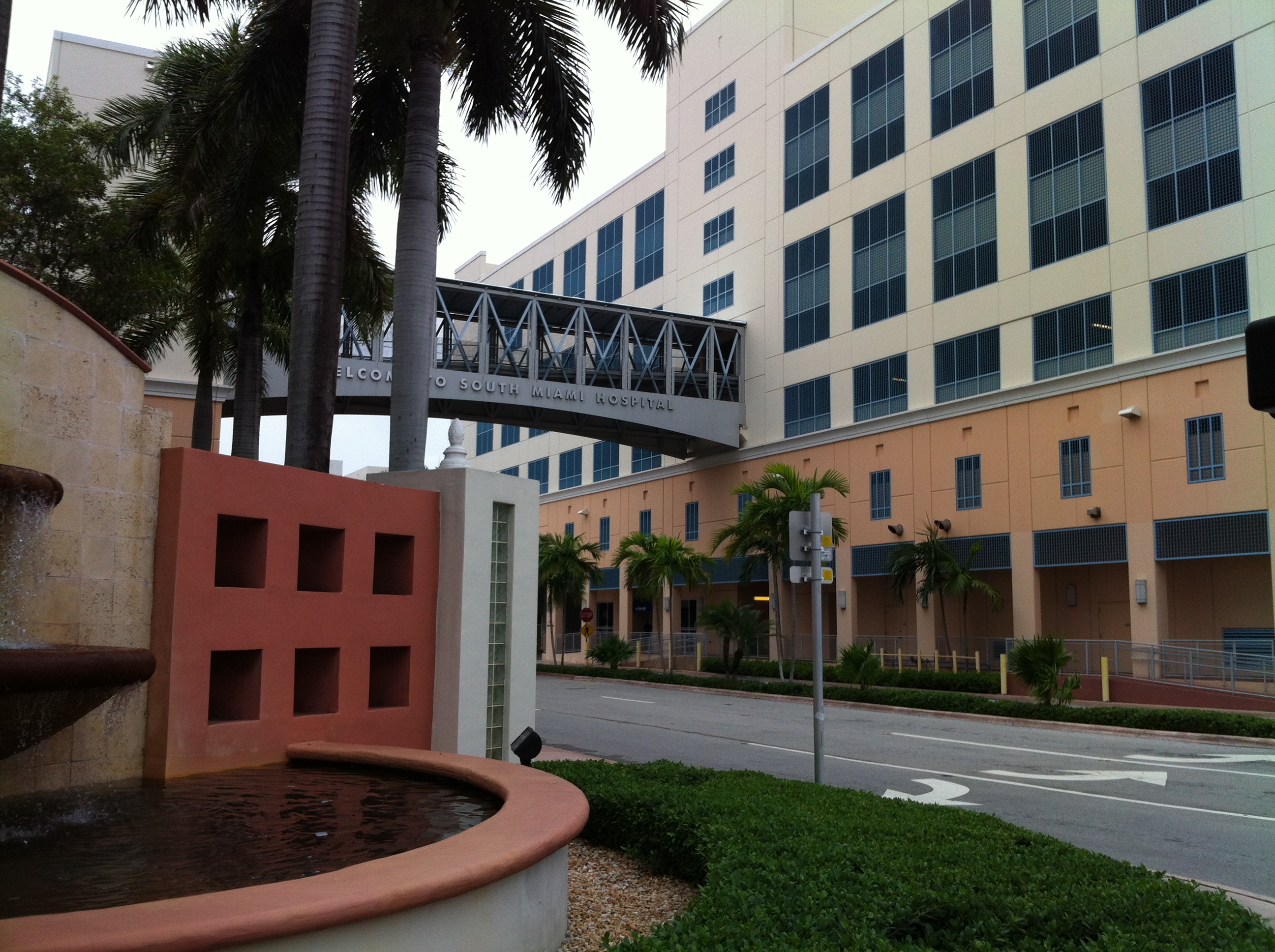Break

So I’m back in Miami, and this month, I’m taking my first break since my wedding last March! I had decided to take this month off to help Irene and I move out of Miami, sell our furniture, attend Irene’s graduation ceremony next week (she graduates from PA school!), properly spend Christmas with family, attend a belated memorial service for Irene’s late beloved uncle at the end of this month, and study for the Step 2 CS exam, which I plan on taking next spring.
I thought I would really enjoy this break (who doesn’t?), but after not even a week into this break, I’ve learned something profound about myself… I not only like, but actually prefer to be in the hospital working. Sitting in my apartment in Miami right now, it feels so strange not going into the hospital and seeing patients. I no longer get the feeling of accomplishment after a busy, productive day that I did when I was running around in the hospital, or the feeling that I’ve contributed something to someone else’s life. Those are amazing feelings one doesn’t really get with sitting at a desk reading board review books and selling off furniture pieces on craigslist at ultra bargain prices. I actually miss being at the hospital right now, and I’ve surprised myself with this revelation. Perhaps my attitudes may change in the future, especially when Irene and I have kids and start a family, but at least for right now, it makes me happy to know that I’m going into the right career path
My next rotation will be 12 weeks of Surgery, which I’ll start in January at Queen’s/Romford Hospital in London (yes, I’m going back!). I hear so many great things about this rotation from my classmates: the attendings love teaching students, you see a lot, and the working hours are much nicer than the surgery rotations in the US, which often requires students to be at the hospital by 4-5am. In the UK, in contrast, you just go at 9am. In the UK, they also give students much more opportunity to learn to do procedures. One of my friends who went to Romford for her surgery rotation got to do an appendectomy by herself with the doctor verbally guiding her way through the procedure. She told me that rotation was one of the best experiences she’s had in medical school, and convinced me to go. It’s also nice that AUC will help pay for my flight. On top of that, Irene will be able to join me later on after she takes her PANCE exam (Physician Assistant National Certifying Exam), and together we can experience living in the UK, and perhaps take a few excursions to visit other countries on the weekends as well. It will be my last core rotation, after which I’ll have four more electives before I’ll be done with everything. I’m really looking forward to returning to the hospital after this break!














8am for surgery but yep definitely better than 4am!
If you didn’t go last time go to Edinburgh when you are over here!
Hi Tiffany! Thanks for the clarification. I went to Edinburgh last time and I LOVED IT! It’s one of the most beautiful cities I’ve been to. My friend and I also took a bus tour to the highlands and Loch Ness. I really loved my time in England and am looking forward to returning soon, this time to London.
Benji
Here’s my post about my Scotland adventures: http://www.caribbeanmedstudent.com/2012/01/weekend-in-scotland/
Hello!
I will be starting AUC next month and LOVE that we are able to do clinicals in the UK. But, I have a couple of questions about that. Does doing clinicals in the UK impact our ability obtaining a residency in the US? And would it be possible say, if we fell in love with England, that we could stay and practice there?
Hi Phim,
The opportunity to do rotations in the UK is definitely a plus about AUC. As for it affecting your residency, as long as you do at least one year of rotations in the US, you will be fine. And to be extra “safe” you could do the rotation of the field you want to go into in the US. But from what I hear from my friends and alumni who are applying or have gotten into residencies, it actually helps, because having UK experience sets them apart from other applicants, and many residency directors have a good impression of the medical education one gets in the UK. Also, having the UK experience gives you a broader view on medical care in different systems and different cultures as well, and you can express this when you interview.
As for practicing in the UK, that’s always a possibility. However, from what I understand and what I was told by my attendings in the UK, it is very difficult to get a “residency” or even get the license to practice in the UK if you are a foreigner (i.e. US or Canadian citizen), even more difficult than the US. Also, the medical curriculum and education at AUC gears students for future practice in the US and Canada. The UK has a different system altogether since med school is “undergraduate” and they have different exams, and different set-up for post-graduation for their new doctors.
Best of luck Phim!
Benji
I get it now. Thank you!!! Enjoy your break! 🙂
AUC paid for your flight?! Do they always pay for all AUC grads’ flight or it’s like a scholarship thing?
Hi Peter,
Yes, for all 3rd and 4th year AUC students who plan on doing a surgery rotation or several rotations that include surgery in the UK, AUC will pay for your round-trip flight, which I’m really thankful of. It’s only for the UK.
Benji
Hi Benji, great blog, really informative for a prospective student like myself. I just wanted to know, that as a Canadian citizen , how hard is it to obtain a student visa or any sort of visa to perform my rotations in the states? Is this something the school takes care of? And, when one is finally doing residency or practicing medicine, is the green card required or another visa is issued? If you are able to answer this, I will really appreciate it. Thank you and good luck with your rotations!
Hi Faiq! There are certainly many Canadian students and other international students at our school. I’m not sure the details of it. I’d contact the school for more info.
Benji
Hey Benji,
Just wanted to thank you for all the time and work you have put into this blog. I hope that you keep it up over the next few years as I hopefully go through med school. It has been so helpful and informative already and I haven’t even started yet! —Carrie
Thanks for visiting my blog Carrie! Best of luck on your preparation for med school!
Benji
Hi Benji,
I love your blog. We appreciate all the effort you’ve put in to it. I have read your blog and other sites but couldn’t seem to find first-hand information about the timing on how med students from Caribbean schools apply for residency positions. Can you please let us know about how you plan on scheduling your residency application? Will you be able to do it while you’re still doing your electives similar to how US-based students are able to do it? Reviewing your archives, it seems that you were in St Maarten for 2 years (Aug 2009 to Aug 2011), and that you started your clinical rotations in Jan 2012. When will you finish with your electives? If I go by the required 72 weeks of clinical training, you will graduate sometime in the middle of this year. Is this correct? Does this translate to you applying for the 2014 match (i.e., you start your residency in July 2014)? How much time do you think you’ll have between graduating from AUC and starting your residency?
I would appreciate hearing your thoughts about this either publicly on your blog or privately by email. Wishing you all the best.
Ed
Thanks for visiting my blog Ed. Most students who start September 2009 who stay on track will graduate May 2013 and match for 2013. You’d have to graduate by May 2013 in order to match in 2013, and you can apply for residencies while doing electives. However, because I had to retake a course, I’ll be graduating August 2013, and therefore match in 2014. Therefore, I’ll have quite a lot of time between graduating and starting residency. I will try to look for an externship, job, or volunteer position while I apply for residency. The same goes with anyone who started med school January 2010.
Best of luck to you!
Benji
Hi Benji,
First of all let me say that i like your blog. I thinking about applying medicial schools in Caribbean but not sure which one. Could please give me any tips? Thanks
Hi Msgorod,
If you want the option to be able to practice in all 50 states and also need US federal loans, I’d definitely first look into the “Big Four” schools: American University of the Caribbean, Ross University, and St. George’s University, and Saba University, in no particular order. Each school has a different “flavor” so choosing which one to go to is up to your personal preferences. I’ve written several posts about this topic. If you haven’t already, please check out my post on the accreditation of Caribbean schools. It’s a long post, but an important one that everyone considering the Caribbean of med school should know.
Best of luck, and thanks for visiting my site!
Benji
I read your blog from top to bottom…..thanks for providing this as it us hard to come by good information from Caribbean students. As soon as I tell someone I’m applying, they immediately recommend against it, even the Caribbean students and everything from there is downhill with the bashing of the schools and students. Nevertheless, you are an inspiration. Also, I just went back through every entry and I don’t see where you had to repeat a class. Which class or was it regarding the test during 5th semester?
Hi Morgan,
Thanks for reading my blog! It’s unfortunate there is a lot of bias against Caribbean medical schools, even though the top schools (AUC, SGU, Ross) all follow a US curriculum, are taught by US professors, do rotations in the US, are recognized as on par to US accreditation standards by the NCFMEA, and students pass the USMLE at similar rates as US medical students. However, bias does exist and this may be a reason to treat the Caribbean option as a back-up option. The education you get is excellent (at least at AUC, SGU, and Ross) and shouldn’t be the reason to see the Caribbean as a back-up. While most students I know personally have matched to a residency program, there are also several I know who didn’t match or matched the following year. Most students who match match in primary care specialties like Family Medicine, Internal Medicine, or Pediatrics. Every year we also have a handful of those who match in surgery, radiology, pathology, opthalmology, and other more selective fields, but probably less than US medical schools. I’d say if you want to match in primary care and don’t mind not matching in prestigious hospitals like Mass General or Brown then the Caribbean is an option you could consider if you don’t get accepted to a US school. The curriculum and workload is no less easier, and if you work hard, pass your exams, and do well in your rotations, you’ll have the doors open to pursue your dreams in medicine.
As for the class I failed (Pharmacology I, fourth semester), I didn’t write about it because it was a difficult time for me and I almost gave up blogging. I thought about my mistakes, and after fourth semester I started blogging much less, got involved in much less extracurricular activities, and focused more on my studies. I ended up not only passing but honoring Pharmacology after taking it a second time. I went on to pass all my shelf and step exams on the first try, and honored all of my clinical rotations.
Benji